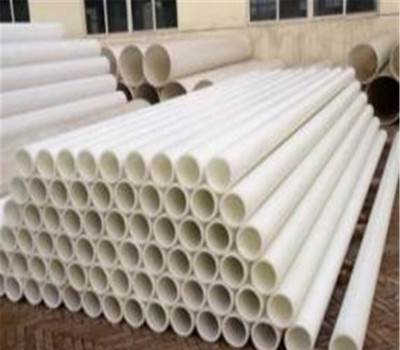The PP pipes produced and manufactured by Longchangjie have multiple performance advantages, which are mainly described from three aspects: chemical, physical, and installation and usage performance.
1. Chemical performance advantages
· Corrosion resistance: PP pipes can withstand the corrosion of high-concentration acids and alkalis with PH values ranging from 1 to 14 over a wide temperature range. They can prevent erosion by various chemical substances and are suitable for transporting corrosive liquids, making them ideal for industries such as chemical engineering that have high requirements for pipe corrosion resistance.
· Non-absorbent: The almost non-absorbent property of PP pipes ensures that their performance will not decline due to water absorption, guaranteeing the stability and durability of the pipes.
· Hygiene and environmental protection: The main components of PP pipes are polyethylene or polypropylene, which are safe and non-toxic and will not cause pollution to the conveyed medium (such as drinking water). They meet the requirements of environmental protection and energy conservation and are suitable for fields with high hygiene requirements such as process pipelines in the food industry.
· Wear-resistant and non-scaling: The inner walls of PP pipes and their fittings are uniform and smooth, with low flow resistance. This not only reduces energy loss during liquid flow but also prevents scaling, ensuring the purity of the liquid inside the pipe and the efficiency of transportation. Even after long-term use, they can maintain good transportation performance.
2. Physical performance advantages
· Good electrical insulation: It has a certain electrical insulation capacity and is relatively safe to use in some environments with electrical safety requirements, which can reduce the safety hazards caused by the conductivity of pipelines.
· It has a certain degree of transparency: It is convenient to observe the flow and state of the liquid in the pipeline during use, and it is easy to discover problems in time and handle them.
· Excellent elasticity: PP material has excellent elasticity, which enables the cross-section of pipes and pipe fittings to expand along with the frozen liquid without cracking. When used in cold regions, it can effectively prevent the problem of pipe rupture caused by the expansion of liquid freezing, and has good anti-freezing crack performance.
· Excellent sound insulation performance: It can significantly reduce the vibration and noise caused by liquid flow, creating a quiet usage environment. It is suitable for places with high noise control requirements, such as residential buildings and hospitals.
· Anti-condensation and low heat loss: PP material is a poor heat conductor, which can reduce condensation and avoid problems such as dampness around the pipes caused by condensation. At the same time, it can also reduce heat loss and improve energy utilization efficiency. It performs well in systems that require insulation, such as heating systems.
3. Advantages in installation and usage performance
· Easy connection: It is relatively light in weight, easy to install and operate, and does not consume too much manpower and energy. Moreover, there are various connection methods, which are solderable, such as common welding methods and edge welding methods, etc. The appropriate connection method can be selected according to different construction scenarios and requirements.
· Simple construction: PP pipes are light in weight, easy to handle, have a simple welding process, and low construction difficulty, which can reduce construction costs and shorten the construction period. In addition, it can also coil small-diameter pipes. For some special construction conditions, such as underwater laying, the pipe sinking method can be adopted, further reducing the construction difficulty and project cost.
· Long service life: The PP pipe system can last up to 50 years under specified usage conditions. Pipes produced in accordance with national standards can be used stably for a long time, reducing the cost and trouble of frequent pipe replacement and offering a high cost-performance ratio.
· Obvious economic advantages: Compared with metal pipes, PP pipes are relatively cheaper. Under the same pipe diameter, length and pressure, their flow capacity is greater than that of steel pipes, which can reduce engineering investment. Moreover, the demand for PP pipe trenches is much lower than that for steel pipe trenches, which can reduce the overall project cost.


